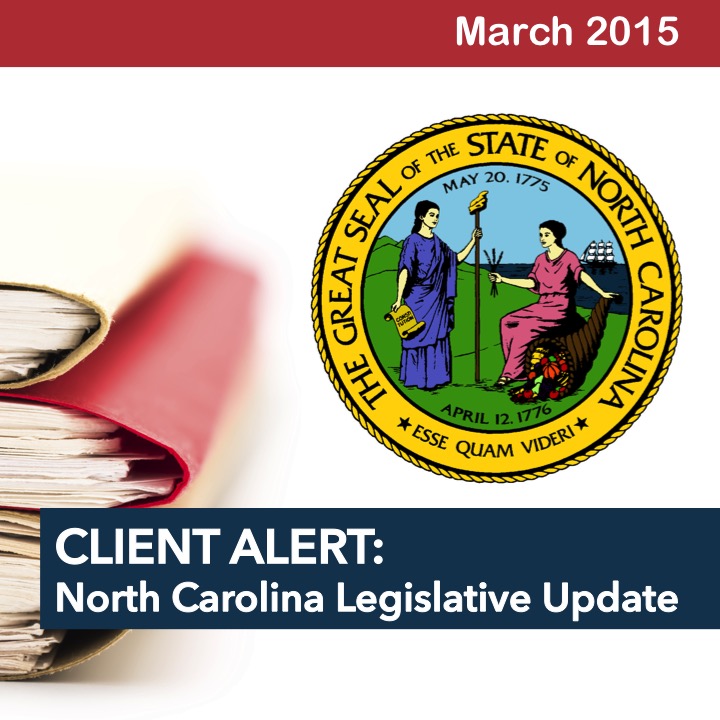
Proposed NC Bill to Provide Private Rights of Action for Inaccurate Credit Reporting
The North Carolina Senate has introduced a bill that will create a private right of action for inaccurate credit reporting. Senate Bill 357 proposes to include new provisions to both Chapters 58 and 75. The proposed bill will provide a private right of action to consumers when a creditor, collection agency, or debt buyer fails to correct inaccurate information in a credit report after receiving notice of a dispute directly from a consumer. The bill provides two provisions, one directed to those collecting debt on their own behalf and one directed to collection agencies and debt buyers.
The Bill proposes amendments to Article 2 of Chapter 75 (the “North Carolina Debt Collection Act”) and Article 70 of Chapter 58.
It provides as follows:
§75-57. Duty to correct incorrect information reported to credit reporting agencies.
A debt collector shall have a duty to verify the accuracy of, and to correct any incorrect information in, any report made by the debt collector to a credit reporting agency upon notification by a consumer that the information is incorrect. Failure to comply with this section within 60 days of receipt of written notification from a consumer that the debt collector has included inaccurate information in a report to a credit reporting agency shall be an unfair and deceptive trade practice under G.S. §75-1.1.
§58-70-170. Duty to correct incorrect information reported to credit reporting agencies.
A collection agency shall have a duty to verify the accuracy of, and to correct any incorrect information in, any report made by the collection agency to a credit reporting agency upon notification by a debtor that the information is incorrect. Failure to comply with this section within 60 days of receipt of written notification from a debtor that the collection agency has included inaccurate information in a report to a credit reporting agency shall be an unfair and deceptive trade practice under G.S. 75-1.1.
The federal Fair Credit Reporting Act likewise requires data furnishers to provide correct information to credit reporting agencies and to correct any inaccurate information. However, the Act does not provide a private right of action when the consumer directly disputes inaccurate or incomplete information with the data furnisher. See 15 U.S.C. §1681s-2(a)(2) and (c)(1). The proposed North Carolina legislation appears to provide a private right of action under those circumstances, which seems to directly conflict with the federal Fair Credit Reporting Act.
Impact analysis of proposed N.C.G.S. §75-57:
Applicable to original credit furnishers and creditors directly engaged in collecting consumer debts.
If passed, Section 57 will provide consumers with a private right of action, with recovery of actual damages and statutory civil penalties of $500-$4,000 per violation; applicable in instances where a consumer directly disputes an item on his/her credit report with the creditor/furnisher.
The provision is problematic in that it:
- Does not provide guidance as to what would constitute a reasonable investigation.
- Does not define what constitutes “notice” by the consumer.
- Ignores the fact that while credit furnishers may submit requests to credit reporting agencies to update information on a consumer’s credit report, the only entities who can actually perform the update are the credit reporting agencies themselves.
Proposed Section 57 would apply to banks, credit card companies, finance companies and other creditors who furnish information about consumers to credit reporting agencies. See N.C.G.S. §75-50.
Impact analysis of proposed N.C.G.S. §58-70-170
Applicable to collection agencies and debt buyers.
The implications for collection agencies and debt buyers are largely the same as original credit furnishers. However, the bill is unclear as to whether there is a private right of action and if so, the measure of damages. In its current form, Article 70 only addresses liability and private rights of action for violations of Part 3 of Article 70. Yet, as drafted, the proposed N.C.G.S. §58-70-170 will appear as Part 6 of Article 70. Therefore, since Article 70 currently does not contain a provision that addresses the measure of damages for N.C.G.S. §58-70-170, the proposed provision leaves open the measure of damages, as well as whether or not a private right of action is even available.
Adding to these concerns is the question of whether this legislation is preempted by the Fair Credit Reporting Act. We strongly suggest this is the case. With the exception of states that previously received a carve out (specifically Massachusetts and California), the Fair Credit Reporting Act expressly provides that:
“[n]o requirement or prohibition may be imposed under the laws of any State with respect to any subject matter regulated under section 1681s-2…of this title, relating to the responsibilities of persons who furnish information to consumer reporting agencies.” 15 U.S.C. §1681t (b)(1)(F); see also Ross v. Fed. Deposit Ins. Corp., 625 F.3d 808, 812 (4th Cir. 2010).
It is our view that the proposed bill directly conflicts with this provision.
North Carolina Senator Stan Bingham of District 33 is the Bill’s primary sponsor, with the bill garnering bi-partisan support from Senators Brent Jackson, Michael V. Lee, Gladys A. Robinson, and Joyce Waddell. The Bill passed its first reading on March 24, 2015 and has been referred to committee.

